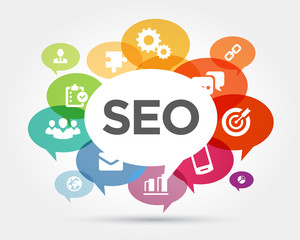In the modern business environment, efficiency, accuracy, and agility are crucial for companies aiming to remain competitive. Many organizations struggle with outdated processes, repetitive tasks, and disconnected workflows that hinder productivity and slow down operations.
Business Automation Consultant offers the expertise and strategic insight needed to address these challenges by helping organizations implement tailored automation solutions. These professionals act as a bridge between business objectives and technological capabilities, ensuring that automation initiatives are not only effective but also aligned with long-term strategic goals.

By leveraging their experience, organizations can streamline operations, reduce operational costs, and free up resources to focus on higher-value tasks, ultimately driving growth and innovation.
The process begins with a thorough analysis of the organization’s existing workflows and processes. Business automation consultants examine how tasks are currently performed, identify inefficiencies, and highlight areas where automation can provide the most impact. This assessment often involves detailed mapping of processes, identification of repetitive or manual tasks, and evaluation of systems and software currently in use. By gaining a comprehensive understanding of operational challenges, the consultant can develop a clear strategy that addresses pain points and optimizes performance. This careful planning ensures that automation is not applied indiscriminately but is used strategically to enhance efficiency and drive measurable results.
Following the assessment, the consultant develops a tailored automation strategy. This plan outlines which processes should be automated, the appropriate technology platforms to use, and the expected outcomes in terms of efficiency, cost savings, and productivity improvements. By prioritizing high-impact tasks, organizations can achieve quick wins while laying the groundwork for broader, long-term automation initiatives. The strategy also considers scalability, allowing organizations to expand automation across departments or functions as business needs evolve. A well-crafted plan ensures that automation initiatives are sustainable and continue to provide value over time.
Selecting the right technology is a critical component of the consultant’s role. The automation landscape is vast, including tools for workflow automation, robotic process automation (RPA), customer relationship management (CRM), and business process management. A business automation consultant evaluates these tools based on compatibility, ease of integration, scalability, cost, and overall effectiveness for the organization’s unique needs. Proper technology selection maximizes return on investment and ensures seamless adoption. Consultants help organizations avoid costly mistakes associated with choosing incompatible or ineffective software solutions, ensuring that automation initiatives are set up for success from the start.
Implementation of automation solutions is where strategy translates into tangible results. Consultants work closely with internal teams to configure software, integrate systems, and establish automated workflows that reflect the designed strategy. Effective implementation minimizes operational disruption while ensuring that processes operate efficiently and accurately. Training and support are also provided to ensure that employees understand how to use the automated systems, monitor workflows, and handle exceptions. By providing guidance and hands-on support, the consultant ensures that automation adoption is smooth, effective, and embraced by staff, increasing the likelihood of long-term success.
Once automation is in place, monitoring and optimization become essential to maintain effectiveness and adapt to evolving business needs. Business automation consultants track performance metrics, evaluate outcomes, and identify opportunities for further process improvement. Automated systems often reveal new insights into workflow inefficiencies, allowing consultants to refine processes and enhance performance over time. This continuous optimization ensures that automation remains relevant, effective, and aligned with organizational goals, helping companies maintain a competitive advantage in a rapidly changing business landscape.
Risk management and compliance are critical considerations in any automation initiative. Automated processes often handle sensitive data, financial transactions, or customer interactions, which must comply with industry regulations and security standards. Business automation consultants ensure that automation workflows adhere to compliance requirements, incorporate necessary security protocols, and minimize operational risks. By addressing potential vulnerabilities proactively, organizations can confidently deploy automation solutions without compromising data security, regulatory compliance, or operational integrity. This level of oversight is particularly important for businesses in regulated industries, where errors or breaches can have significant financial and reputational consequences.
Another key benefit of working with a business automation consultant is their ability to align automation initiatives with broader digital transformation goals. Automation is not merely about replacing manual tasks with technology; it is a strategic tool for transforming the way organizations operate. Consultants help businesses integrate automation into their overall business strategy, ensuring that technology investments support growth, innovation, and scalability. This holistic approach ensures that automation initiatives deliver tangible business outcomes, rather than functioning as isolated technology projects. By connecting automation to strategic objectives, organizations can achieve operational excellence while positioning themselves for long-term success.
Cost efficiency is a major advantage of automation, and a consultant plays a vital role in maximizing return on investment. While implementing automation may require upfront expenditure on software, integration, and training, the long-term benefits often outweigh initial costs. Automation reduces labor-intensive manual work, improves accuracy, accelerates processes, and optimizes resource allocation, resulting in significant cost savings. Consultants guide organizations in identifying areas where automation will have the highest impact, helping to prioritize initiatives that generate measurable financial and operational benefits. This ensures that investment in automation is strategic and yields long-term value.
Change management is also a crucial component of successful automation adoption. Introducing new technologies can disrupt existing workflows, alter employee responsibilities, and require shifts in organizational culture. Business automation consultants assist organizations in managing this change by communicating benefits, providing training, and addressing concerns or resistance from staff. Proper change management helps employees understand the value of automation, fosters acceptance, and ensures smooth integration into daily operations. By guiding teams through the transition, consultants help organizations maximize the benefits of automation while minimizing disruption and resistance.
Business automation consultants provide value across a wide range of industries and operational functions. From finance, human resources, and customer service to supply chain management, marketing, and IT operations, automation can enhance efficiency and reduce human error across the enterprise. Consultants identify high-impact areas for automation, whether it is streamlining invoice processing, automating customer communications, integrating data systems, or managing inventory workflows. By applying their expertise across multiple domains, consultants enable organizations to achieve operational improvements that enhance both internal performance and external customer experiences.
The role of a business automation consultant also extends to long-term planning and scalability. Automation initiatives that are implemented without a clear roadmap may become limited in scope or fail to adapt to changing business conditions. Consultants design automation strategies that are scalable, allowing businesses to expand automated workflows as their needs grow or as technology evolves. This forward-looking approach ensures that automation remains an asset rather than a constraint, supporting growth, innovation, and operational agility. By anticipating future challenges and opportunities, consultants provide organizations with a sustainable framework for automation success.
Ultimately, the value of a business automation consultant lies in their ability to combine technological expertise, business acumen, and strategic insight. They help organizations implement automation that is not only functional but also aligned with long-term goals, secure, compliant, and optimized for performance. By addressing both immediate operational challenges and future growth opportunities, consultants ensure that automation delivers measurable benefits, improves efficiency, reduces costs, and enhances competitiveness. Organizations that leverage the expertise of a business automation consultant gain a strategic partner in digital transformation, capable of driving operational excellence and long-term success.
In conclusion, business automation consultants are essential for organizations seeking to improve efficiency, streamline operations, and enhance productivity in today’s dynamic business environment. Through comprehensive assessment, tailored strategy development, technology selection, implementation, and ongoing optimization, consultants provide a full-spectrum solution for process automation. They ensure compliance, mitigate risks, facilitate change management, and align automation initiatives with broader organizational objectives. By partnering with a business automation consultant, organizations can transform workflows, reduce operational burdens, enhance accuracy, and foster innovation. The result is a more agile, efficient, and competitive organization, fully equipped to navigate the demands of a rapidly evolving business landscape.




